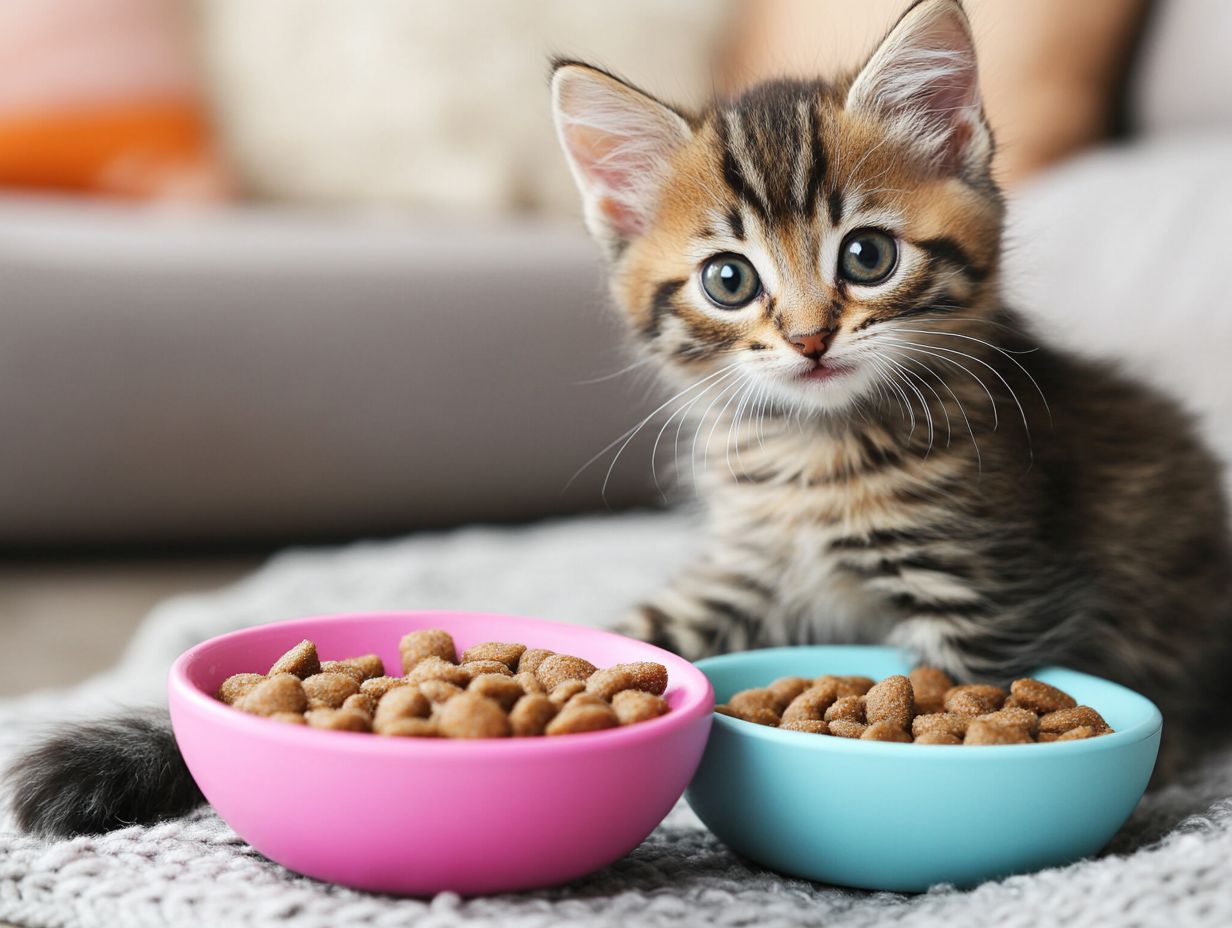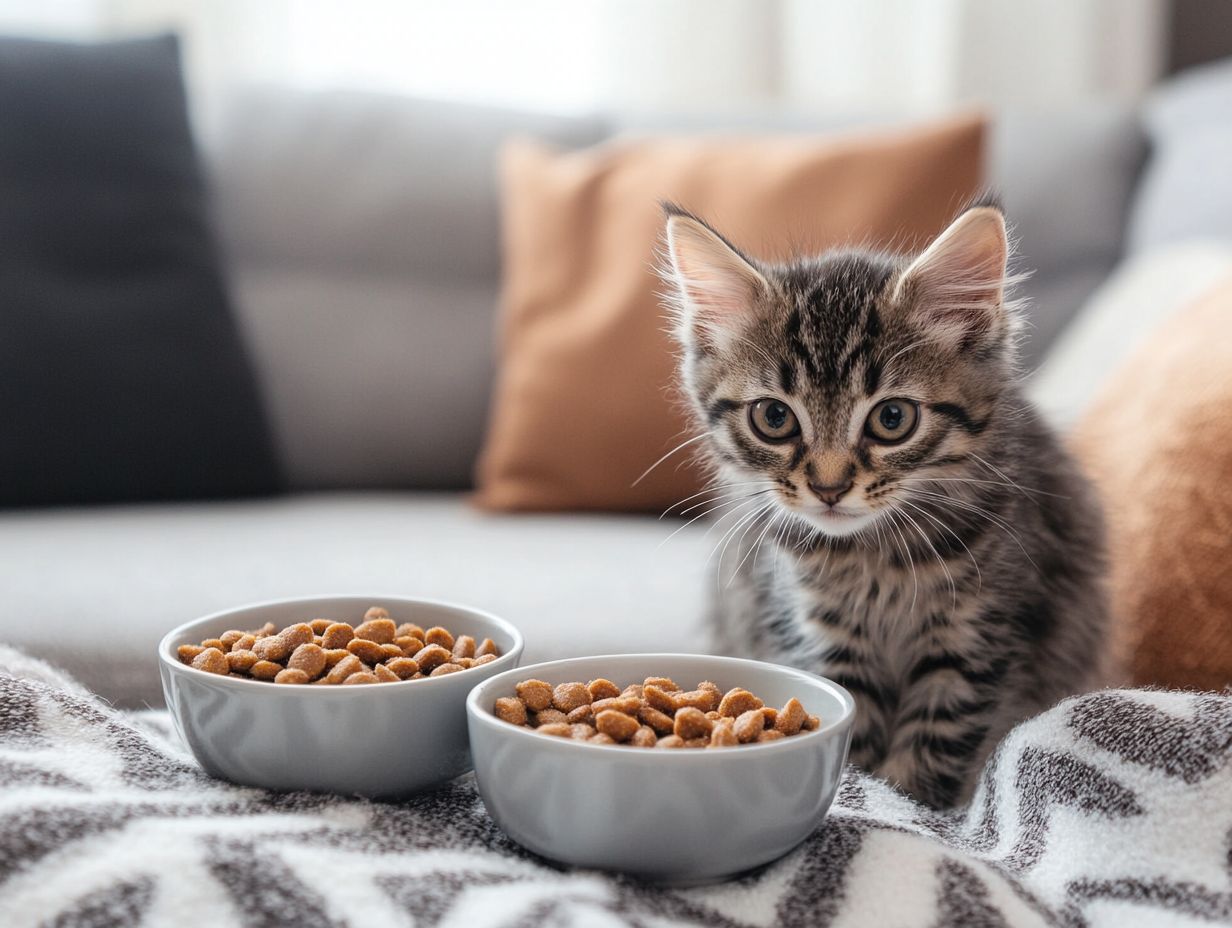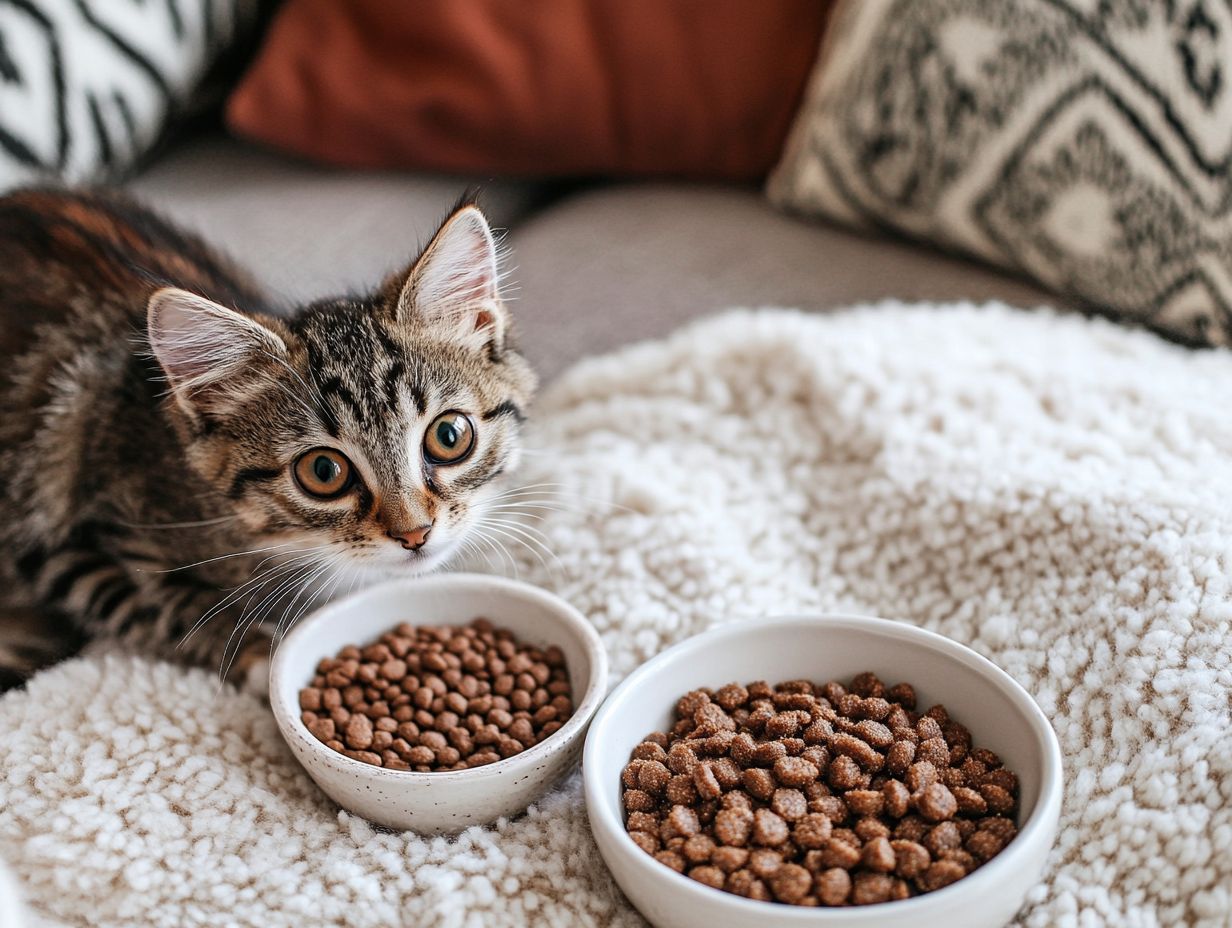If you’ve noticed your kitten struggling with tummy troubles, you’re not alone. A sensitive stomach can affect a young cat’s health and happiness, leading to discomfort and potential nutritional deficiencies. In fact, studies indicate that nearly 30% of kittens experience gastrointestinal issues at some point during their development.
This article explores what defines a sensitive stomach in kittens, its common causes, and the signs to watch for, including potential food allergies and GI disturbances. Understanding these aspects is crucial for any pet owner.
We’ll also discuss the best foods tailored for sensitive tummies, tips for transitioning to new diets, and essential practices to maintain your kitten’s digestive health, including the use of probiotics and omega-3 fatty acids. Remember, as obligate carnivores, kittens require animal-source proteins for optimal health.
Read on to ensure your furry friend thrives!
Key Takeaways:

- Choose high-quality, limited ingredient diets for kittens with sensitive stomachs to avoid triggering digestive issues. Ensure these diets are backed by veterinary nutritional standards.
- Consider incorporating novel protein sources and probiotic/digestive enzyme supplements, discussing with a veterinarian to ensure safety and efficacy.
- Consult with a veterinarian for all dietary changes, especially when introducing a new diet to a kitten with a sensitive stomach. Regular check-ups are essential for accurate diagnosis and dietary trials.
What is a Sensitive Stomach in Kittens?
A sensitive stomach in kittens is a condition that affects their gastrointestinal health and is linked to various medical issues, particularly vomiting, diarrhea, discomfort, and pain.
Factors contributing to a sensitive stomach in kittens include food allergies, dietary changes, and underlying health problems, which may necessitate a hypoallergenic diet or lower carbohydrate intake. It’s important to monitor for signs of nutritional deficiencies and consult a veterinarian, particularly for kittens with special dietary needs such as kidney disease or diabetes.
Signs and Symptoms of a Sensitive Stomach in Kittens
Recognizing the symptoms and signs of a sensitive stomach early is crucial for initiating prompt treatment. Common symptoms may include vomiting, diarrhea, lack of appetite, and behavioral changes. These indications may suggest that underlying medical issues or gastrointestinal disturbances are present, requiring veterinary attention for diagnosis and treatment.
How to Tell if Your Kitten Has a Sensitive Stomach
To determine if your kitten has a sensitive stomach, watch for specific signs such as frequent stomach upset, diarrhea, or changes in eating habits. Additionally, be alert for excessive gassiness or discomfort after mealtime, which may suggest food intolerances or allergies.
It’s essential to track these observations over time and share them with a veterinarian, who can offer expert advice and necessary dietary changes based on the symptoms.
Common Digestive Issues in Kittens
Kittens often experience sensitive stomachs due to their developing digestive systems, which can result in vomiting, diarrhea, and discomfort. Monitoring their behaviors before consulting a veterinarian is critical for a proper diagnosis.
Best Foods for Kittens with Sensitive Stomachs

The best cat food for kittens with sensitive stomachs is designed to promote digestive health and prevent future complications. High-quality, limited ingredient diets and hypoallergenic options are ideal, as they reduce the risk of adverse reactions.
1. High-Quality, Limited Ingredient Diet
Kittens with sensitive stomachs can benefit from a high-quality, limited ingredient diet, which typically consists of a single source of protein, like chicken or salmon. Brands like Blue Buffalo Basics and Wellness Simple provide proper nutrition without excessive fillers.
2. Novel Protein Sources
Introducing novel protein sources such as insect meal, kangaroo, and duck can significantly benefit kittens with sensitive stomachs by promoting proper digestion.
3. Probiotic and Digestive Enzyme Supplements
Probiotics and digestive enzyme supplements can enhance gut health and food digestion. However, always discuss supplement use with a veterinarian to ensure it is suitable for your kitten.
4. Homemade Diets for Kittens with Sensitive Stomachs
Homemade diets can be beneficial but must be carefully formulated to meet AAFCO standards for balanced nutrition. Consulting with a veterinarian before making any dietary changes is essential.
How to Transition Your Kitten to a New Diet
When transitioning to a new diet, do so gradually to avoid digestive upset. Mix the new food with the old food, allowing the kitten’s digestive system to adjust. Consult a veterinarian for the best practices during this transition.
Other Tips for Maintaining Your Kitten’s Digestive Health
The tips for maintaining good digestive health in kittens include:
- Regular veterinary check-ups
- Ensuring adequate hydration through methods such as wet food or water fountains
- Monitoring for food allergies
Proper Food Storage
To prevent spoilage and maintain food quality, store kitten food in a cool, dry place in an airtight container. Look for signs of spoilage, such as an off smell or changes in texture.
Warnings About Harmful Human Foods
Kittens should avoid table scraps, as many human foods—including chocolate, grapes, onions, and garlic—can be toxic. Always prioritize specially formulated kitten food to reduce the risk of food sensitivities.
Frequently Asked Questions

What should I look for in a food specifically designed for kittens with sensitive stomachs?
Look for high-quality ingredients, especially animal-source proteins, and avoid common allergens. Consulting with your veterinarian before making significant dietary changes is crucial.
For more information on this topic, check out Kitten Digestive Health: Top Foods for Sensitive Stomachs.